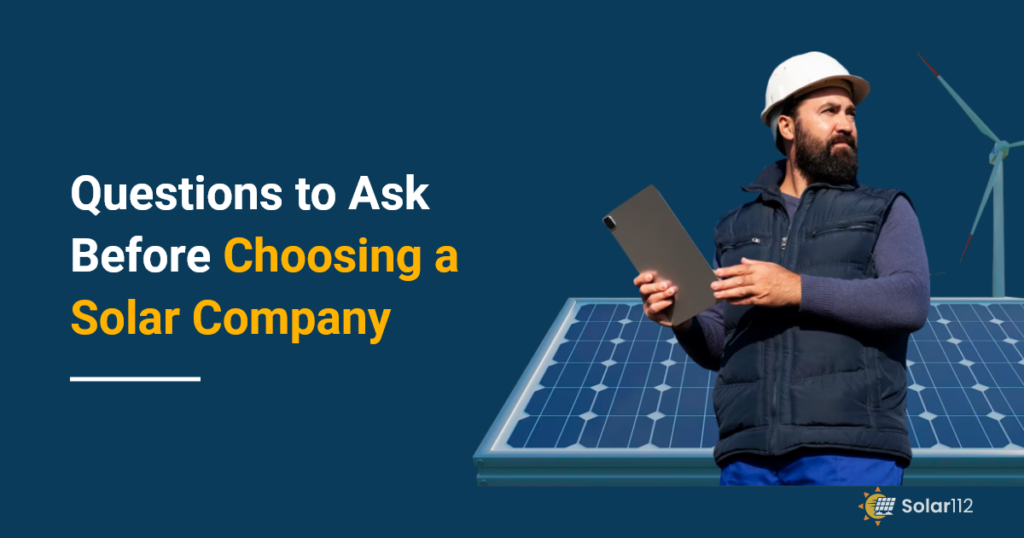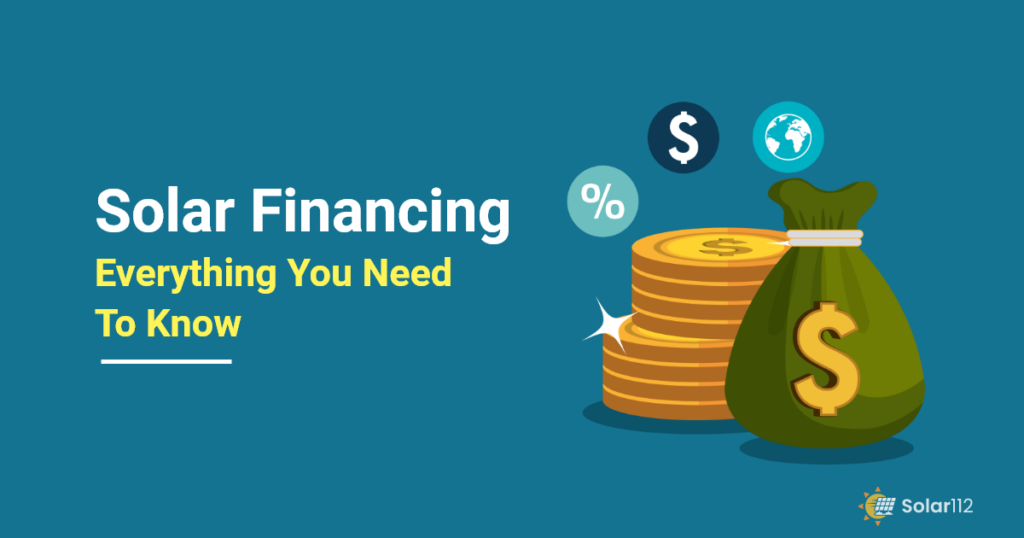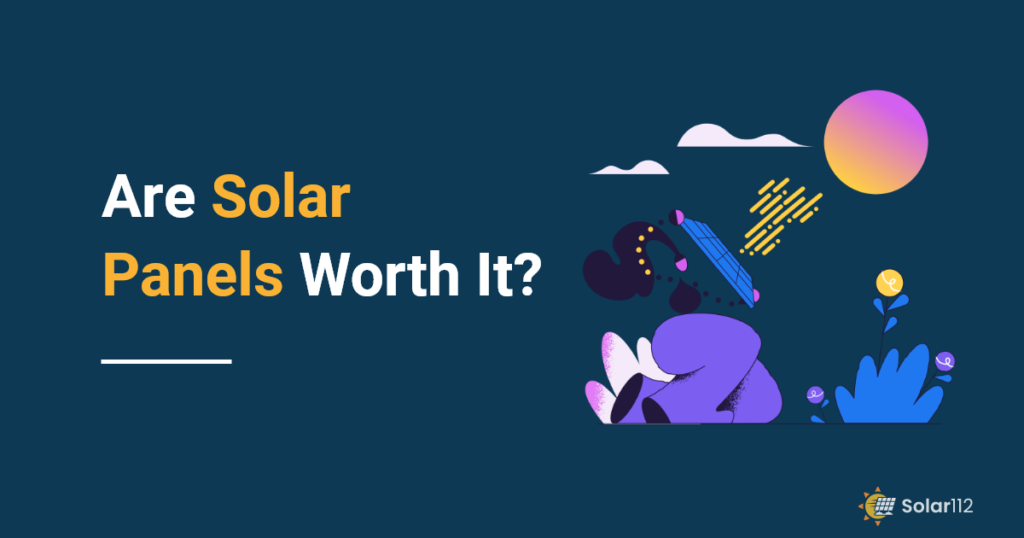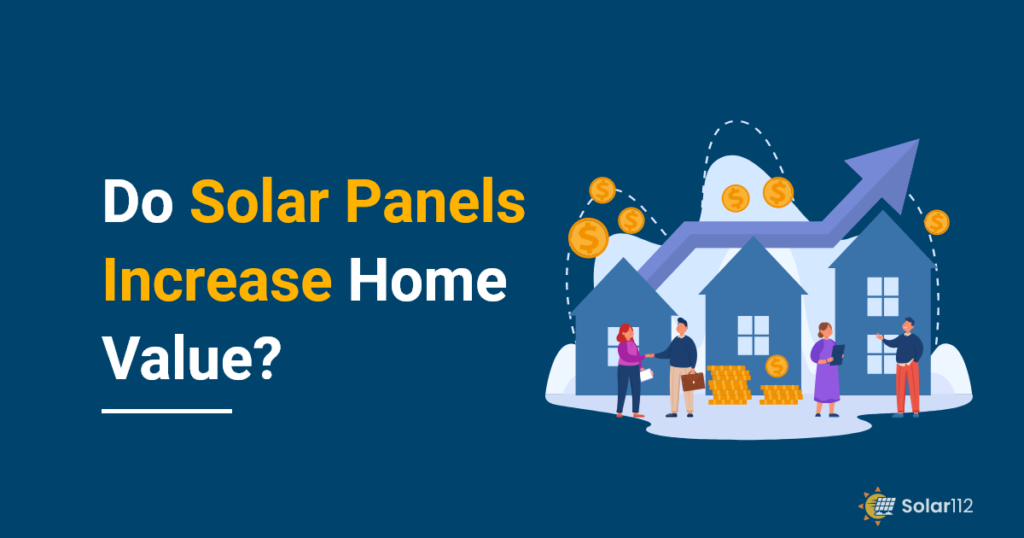Wondering how to choose the right solar panel installer for your home? From where and how to start? What will be the total investment needed for the project?
Don’t worry. We understand the concerns of first-timers.
Installing a solar panel on your property can be a stressful task. And with the growing competition in the solar market, it becomes very challenging to find the right one for yourself. Within California, there are 75,328 solar panel businesses. Now imagine the number across the entire state.
Our goal in this blog is to help homeowners like you take the necessary steps so you can make an informed decision while choosing the most reliable solar contractor in your area.
So, without further ado, let’s get started.
- Ask these questions before you decide on the right solar panel installation company!
- How many PV systems have they installed so far?
- What are their credentials?
- Do they provide roofing services?
- What types of solar panels do they provide?
- Do they provide additional components (battery, inverter, charge controllers)?
- What do their warranties cover?
- What financing options can they offer?
- Do they provide local incentives?
- What do their customers have to say?
- Final Words
Ask these questions before you decide on the right solar panel installation company!
How many PV systems have they installed so far?
Being in the solar business for 10 years does not guarantee that their services will also be long-lasting.
The question here is: how much solar experience do they have on real grounds? How many solar panels have they installed on the homeowners’ property? This is the first question you need to ask while going on a hunt for a residential solar panel company.
For starters, a great rule of thumb suggests that a reliable solar installer must have at least 3 years of experience. Although you can extend the minimum work experience credibility to 5 years, 10 years, or whatever satisfies your mind,
Furthermore, there are different levels and different ways, the solar companies work. You may find some businesses that provide only sales services; this means they have ties with local contractors who would further install the system in your area. Some provide both, that is, sell solar panels and also handle the installation. Thus, this is another crucial aspect to not overlook while checking their credibility.
So, always, always check their number of solar installations and then their work experience. It would help you understand their work model and expertise.
What are their credentials?
Every industry awards standardized certifications to businesses, and the solar industry is no longer the exception.
The North American Board of Certified Energy Practitioners (NABCEP) is the gold standard for solar PV businesses and marks them as qualified residential solar installers. So, while hiring a solar company, ensure that they have this certification and are properly insured.
Furthermore, falls and currents while working with electrical components are two major risks for technicians and installers. The companies that managed to pass their rigorous training can only get the NABCEP certification, ensuring the utmost safety.
Next, as we mentioned earlier, there are two types of solar companies. One who sells the solar panels and provides the installation services, and a second who works with solar contractors who get their work done for you. So, in the case of any subcontractors, you need to check their credentials too.
Do they provide roofing services?
It might sound like an out-of-context question to you but believe us, solar panel installation and roofing services go hand in hand. While choosing a solar panel installer, ask them if they address roofing concerns.
Ask, is your roof condition adequate for the PV installation process, or would it require prior repair services? If needed, do they provide the roof repair services too, or would you need to bear an additional contractor cost?
Furthermore, make it very clear in the beginning that if there is roof damage or a leak in the future, who will be held responsible for that? Thinking about why we are saying that?
The majority of the roofs have vent pipes that are almost sticking out of them. During installation, the technicians position the panels around these vents, which you might not find admirable. But if you are getting your roof fixed, you can ask them to relocate these vents far from the solar panels.
And if they are not into roof repair services, you can speak to your roofer about the vent replacement. This will separate the panels from the vents, ensuring that in the future, if any damage occurs to these pipes, you know who to blame.
What types of solar panels do they provide?
Every home is different, with different electricity consumption and thus different needs for saving power bills. Also, every home is built differently.
A house with a limited area will demand the highest quality solar panels, like monocrystalline, so they can generate more electricity with fewer panels. However, they would cost you more. On the other hand, a home with a larger area can go with less expensive solar panels like thin-film or a combination of polycrystalline and thin-film, which will produce the needed amount of electricity at cheaper rates.
And there could be a case, a homeowner might want to go for aesthetically pleasing panels on their property and install them in the front area of their home.
Considering the above three-pointers, it is imperative to ask your installer what types and what quality of solar panels they deal with.
Ensure that their panels meet all your needs: saving on utility bills, being budget-friendly, and being aesthetically appealing.
Do they provide additional components (battery, inverter, charge controllers)?
An efficient solar power system does not only consist of PV panels. It is a well-balanced arrangement of all the necessary equipment, such as
- storage battery solutions (which will store the additional electricity produced that can be later used in emergencies and power outages),
- inverters (which will convert the DC into AC and power household appliances),
- and charge controllers (that protect against electricity overload).
So, before hiring a solar panel installer for your home, ask them: do they provide these additional, much-needed solutions? Or would you need to arrange them on your own?
Also, question the quality and variety of these solar components. For instance, companies like Enphase Energy have a great reputation in the market for manufacturing batteries, inverters, and EV charge stations. It would be a brownie point for you if your installer has tied up with these company services.
What do their warranties cover?
Investing in solar projects demands a significant amount of money, both for pre- and post-installation processes. This is why it is crucial to keep up with all the hidden costs that come along with it, including repair and maintenance warranties.
Not all solar panel installation companies provide the same years and, in fact, the same level of warranties. To give you a clearer picture, we have divided the quality of warranties into the following categories:
Number of years of warranty
Usually, solar companies provide an average of 20 years that can go up to 25 years of warranty on solar panels. This ensures that during the 25-year frame, any defect in the panels will be covered by them.
Also, you can ask your installer if there is any guarantee of expected power production. If they do, that will be a brownie point for you, as in this case, the company will reimburse the electricity production difference.
What components are covered by the warranty? Is there any workmanship warranty? If yes, are they well qualified or not?
Generally, installers only provide their respective warranties for solar panels. There are additional separate warranties for other solar components like batteries (ranges between 10 and 20 years), inverters (ranges between 10 and 25 years), controllers, and also the workmanship (that could range between 5 and 15 years).
So, before choosing a solar panel installer for your home, check their average warranty plans. Furthermore, ensure that the solar component warranty is covered by the manufacturer and the workmanship warranty is covered by the installer.
Does the company take full responsibility?
Last but not least, it is crucial to know that the company itself takes full responsibility for the warranty. Oftentimes, it has been seen that the company went out of business or the customers had to pay extra out of their pockets. Perhaps this won’t be the service you would like to sign up for.
What financing options can they offer?
While investing in solar projects is an efficient solution to future-proof energy and cutting down on big electricity bills, there is no denying that it comes with significant upfront costs. And it can be a massive obstacle for homeowners like you who are willing to take one step towards solar energy. Therefore, it is wise to ask your solar installer what kind of financing options they have in store for you.
Presently, solar panel systems can be financed in three ways: fully purchase, loan, and lease (PPA). Here is a difference between each of them:
Fully purchasing or outright purchasing the entire solar system demands one-time hefty upfront costs, but it gives you full control over your solar power system. This means that in addition to generating and reselling extra electricity, you can also take full advantage of federal, state, and local incentives.
On a solar loan, you pay a zero-down payment and start enjoying the solar services at a given rate of interest. But the good thing is, in the future, the electricity saved will surpass the additional interest rate, and hopefully one day you can pay the entire amount and own the system.
In a solar lease or PPA, you will pay a recurring monthly fee for using a solar panel system. Each of the above solar financing options has its pros and cons.
So, while hiring a solar installer for your home, don’t forget to ask about these financing options. This will give you two positive perspectives:
- One is that they follow good practices by helping customers with their budget issues and recommending the best option to go with.
- Second, the company’s main vision is not to sell its services at cheaper prices, but it believes in providing quality services at competitive prices.
Do they provide local incentives?
One of the criteria that defines your solar panel installer as the best one is that they can manage to provide the best deals to you, including solar state and local rebates and incentives (entirely different from federal incentives).
For instance, the NY state government offers 25% tax credits on solar projects to qualify customers, whereas the Idaho state government offers 40%. Similarly, there are local incentives provided by the utility providers in which they purchase the extra electricity produced from homeowners at a retail rate (this can also vary).
So, before choosing a solar panel installer for your house, ask them if they support or provide such incentives.
What do their customers have to say?
No matter how deep you dig into a company’s profile, there is always a 1 or 2 percent probability of finding a loophole in their services. However, there is one thing that can stamp on their credibility, and that is the customer reviews or testimonials.
In the present digital world, there is greater transparency about companies than in traditional times. Now you can find the online reviews of a solar company on multiple registered sites. Go through each of them and see what their previous clients are saying about them.
Also, you can ask your solar installer to see their previous work. They will show you right away. And if there is any suspicious activity or opaqueness, then you know what to do.
Final Words
Choosing the right solar panel company for your home is a long journey and might seem daunting in the initial phase. However, by following the footprints of the aforementioned steps, you will be able to find a reliable residential solar contractor who will be able to provide you with a high-quality solar panel installation experience at competitive prices.
Bonus advice: Always look for an installer who could provide the roof repair services too. This will save you hassle and additional costs.
Moreover, installing a solar energy system on your property is a significant one-time investment. So, don’t rush, and take your time. Analyze your needs first and then make an informed decision with the help of the above pointers.
But sooner or later, invest in solar and make your home and this planet a sustainable place to live.



